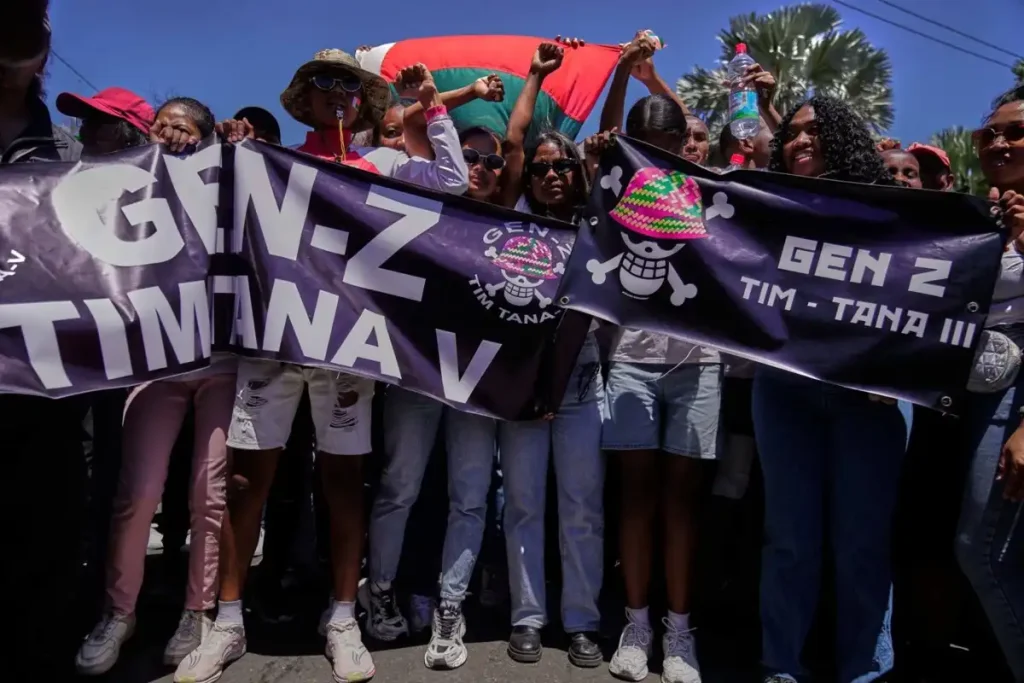In Madagascar, a seismic shift has left young hearts both hopeful and wary. Weeks of fiery protests by youth like 20-year-old Donah Falia, an accounting student, paved the way for a military coup that toppled President Andry Rajoelina on October 15, 2025.
Col. Michael Randrianirina, now sworn in as president, seized power, promising a new dawn. But for Falia, queuing for hours to fetch water in Antananarivo’s outskirts, life remains a grind.
“There’s no hope yet,” he says, his voice heavy with frustration.
The coup, driven by the anger of a generation fed up with poverty, joblessness, and crumbling utilities, has Madagascar’s 30 million people buzzing. Yet, as celebrations fade, the youth who risked everything wonder: will this change their lives?
A Familiar Script
Madagascar knows this story too well. Since shedding French colonial rule in 1960, coups have been a grim tradition, echoed across Africa.
Rajoelina himself rose through a 2009 military takeover, cheered by crowds then, just as Randrianirina is now. When protests erupted in September 2025, driven by leaderless youth, the response was brutal security forces killed 22 and injured over 100, per UN reports.
But when Randrianirina’s powerful CAPSAT military unit joined the demonstrators, Rajoelina fled, branding the coup illegal.
The youth, waving “One Piece” Jolly Roger flags a symbol of global Gen Z defiance celebrated the ousting. Randrianirina’s vow to heed their voices stirred hope, but skepticism lingers.
Voices of the Young
Falia, from Anosimahavelona, sees no immediate relief. Water taps run dry, power cuts persist, and jobs remain elusive. “We wanted to choose our leader,” he says, slumped on a worn couch in his one-room home.
The protests, sparked by soaring unemployment and outages, demanded more than a new face at the top. Tsantsa Fiderana Rakotoarison, a 22-year-old student, remains cautiously optimistic. “The military knows we’ll speak up again,” he warns, eyeing future action if promises falter.
Randrianirina’s pledge to transition to civilian rule offers a glimmer of hope, but the youth remain vigilant, ready to march again if betrayed.
A Restless Nation
Protests rocked cities like Antananarivo, with thousands flooding May 13th Square, where Randrianirina declared his takeover. Unlike the chaotic 2009 coup, marked by looting, this shift has been calmer Farasoa Rakotomanana, a 63-year-old protester, breathes relief at the restraint.
Yet, the stakes are high. Madagascar’s youth, joined by labor unions and civic groups, demand tangible change: reliable power, water, and jobs.
If these needs go unmet, Rakotomanana warns, “We’ll rise again at May 13th Square.” The threat underscores a nation on edge, unwilling to accept empty promises.
A Fragile Hope
Randrianirina’s rise has galvanized Madagascar, but the path forward is fraught. The youth, whose courage toppled a regime, now watch closely. Will their sacrifices yield better lives, or will history repeat itself?
The new leader’s nod to their voices is a start, but Falia’s daily struggle for water and work is a stark reminder of the gap between rhetoric and reality.
As Madagascar navigates this volatile moment, its young generation stands ready to hold power to account, determined to shape a brighter future.
READ MORE: Yango Côte d’Ivoire Joins African Media Agency to Boost Brand






















